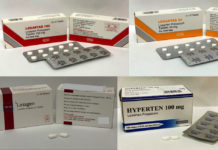 |
| Many wish for poreless, flawless skin |
Everybody has them. We cannot live without them, but many of us hate them. Millions of dollars are spent every year trying to get rid of them.
What is a Pore?
The Pore – an anatomical structure on the skin of humans which plays a vital role in our physiology. Pores are openings in our skin through which biological substances needed for our everyday survival reach the skin surface.
Pores have important functions. Every hair follicle on our body has an accompanying pore. The sweat glands in our skin
Together with sweat glands and sebaceous glands, the hair follicle forms a complex unit which helps maintain the health of our skin.
Through our skin pores, eccrine glands regulate our body temperature by secreting sweat to cool the skin surface. At the same time, sebaceous glands secrete sebum onto our skin surface through pores. Sebum, composed of fatty acids, triglycerides, squalene and cholesterol, moisturise our skin by locking in water on the surface. At the same time, sebum forms a complex organic barrier, protecting us against bacterial and fungal infections.
What is an “Enlarged” Pore?
As you can see from above, pores are very important to our very survival. We have about 5 millions pores on us, but fortunately, not every one of them gives us a headache. The pores my patients are most often bothered by, are the ones on the face, which appear “enlarged”. While what qualifies as being enlarged is purely subjective, most people start to find their pores bothersome when they become visible at a distance. For ladies, many start to take notice when they find that their make-up does not go onto the skin as well any more due to the textural change.
Enlarged pores more often affect the nose & medial cheeks (near the nose) but can also affect the forehead, upper lips, chin, and even on the body (the upper back being the most common body area my patients complain of).
What Causes Enlarged Pores?
There main culprits of enlarged pores – oily skin, gender, skin ageing, sun damage & genetics.
Genetics play a role in the size of your pores. If either of your parents have large pores, you will have a bigger chance of developing them.
If you have oilier skin, you will have larger pores (Men generally have oilier and thicker skin, and hence larger pores as well). People with oily skin produce more sebum, which come out through the pores. When the sebum and dirt start to collect around the pores, they begin to swell, and appear larger. Worse, the excess sebum production means clogging is more likely – whiteheads and blackheads form, which plug the pore, enlarging them further even after you remove the clogs. If the clogged pores get infected, you get acne, which can further wreck havoc on your skin texture.
As we age, our skin loses elasticity, and pores will appear larger. Because cell turnover also decreases, more dead cells begin to accumulate on the surface as we age, stretching the pore edge, making them larger. Sun damage, which thickens the skin surface, has a similar detrimental effect.
Minimizing Pores
Contrary to what many advertisements tell you, pores are not doors – they cannot be opened or closed. But they can be minimised – made to look smaller, to that the skin surface appears smoother.
I will talk more about how to achieve smaller pores in the next post!



















